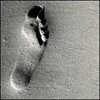

For nearly 50 years, facing a static enemy, American intelligence analysis was based on a hierarchical decision-making process that oftentimes insulated analysts from criticism and interaction with the ultimate consumers of their product. In countering asymmetric threats and non-state adversaries, the model is simply outmoded. A flatter, horizontal, networked solution has proven much more effective in today's world. In his second edition, Robert Clark--former CIA analyst and executive in the Intelligence Directorate--explains how a collaborative, target-centric process both attends to the needs of the customer and promotes more effective collection. Based on feedback from users, early chapters introduce the concept of model synthesis more gradually. Recent intelligence events--with the Iraqi WMD Commission Report at center stage--illustrate the importance of target-centric analysis. This revision also includes broader treatment of collection strategies, systems analysis, and analyst-customer interaction as well as more attention to denial and deception, and to both counterterrorism and counterintelligence analysis. This new edition contains updates of the practical information and day-to-day details from the previous book told as only an experienced intelligence hand could. Extensive descriptions of the art of target modeling and organizational analysis, as well as thoroughly detailed overviews of the quantitative and predictive techniques used in intelligence analysis make this book an essential tool for illuminating an often shadowy world.
więcej
Informacje dodatkowe o Intelligence Analysis:
Wydawnictwo: brak danych
Data wydania: b.d
Kategoria: Socjologia, filozofia
ISBN:
Liczba stron: 0
Kup książkę Intelligence Analysis
Sprawdzam ceny dla ciebie ...
Cytaty z książki
REKLAMA
Zobacz także
Intelligence Analysis - opinie o książce

Inne książki autora
Mein ist die Stunde der Nach
0
Ein Fluch scheint über der ehemaligen Schulklasse von Jean Sheridan zu liegen. Bereits fünf ihrer früheren Mitschülerinnen sind auf tragische Weise ums...
Molecular Biology
Zobacz wszystkie książki tego autora
0
Molecular biology is a fast-paced field that constantly provides new insights into the living world and the role of humans within it. Students and professionals...















